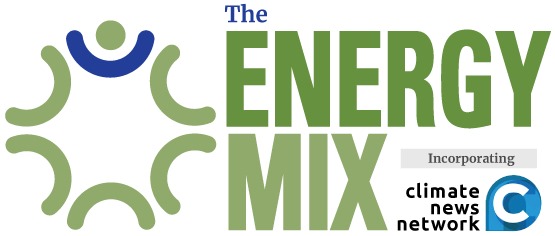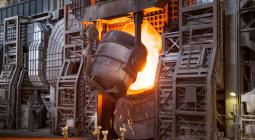‘Grand Bargain’ on Oil Won’t Cut Emissions, ‘Could Get Us In Trouble’ as Trading Partners Decarbonize: Donner
Prime Minister Mark Carney’s musings about “decarbonized” oil and his negotiations toward a “grand bargain” on fossil fuel production and its climate pollution “could get us in trouble” with future trading partners while failing to get emissions under control, the co-chair of Canada’s Net-Zero Advisory Body (NZAB) said Friday.
“In this effort to shift away from over-reliance on trade with the United States, we’re doubling down on things from the past rather than investing in the technologies that will be growing more in the future,” University of British Columbia climate science Simon Donner told The Energy Mix.
The notion of a grand bargain, floated by Alberta Premier Danielle Smith at last week’s first ministers’ meeting in Saskatoon, would see the federal government approve a new oil pipeline in exchange for Alberta and the fossil industry building the economically controversial C$16.5-billion Pathways Alliance carbon capture and storage hub and pursuing other decarbonization measures, Donner said. “For now, no private investor is currently proposing to build the sort of pipeline that Smith envisions,” CBC senior writer Aaron Wherry noted last Tuesday. “Smith thinks one will come forward, which at least sets up a test of how much enthusiasm for a pipeline actually exists outside the political world.”
Earlier last week Donner told the Toronto Star the notion of “decarbonized” oil defies high school chemistry, predicting that “the government is going to embarrass itself by using such industry and marketing speak.” On Friday, he went further, warning that Carney will imperil his own quest for “reliable” trading partners if Canada fails to align with where most of the rest of the world is going on energy and climate change.
I don’t think Canadians realize that the conversation about the future of fossil fuels, particularly the future demand for oil and gas, is completely different within Canada and outside Canada,” Donner told The Mix. Investors and public figures elsewhere “already are making decisions based on the projections for a long-term decline in demand for oil, and in some cases for gas. A lot of this comes from the International Energy Agency, that to be clear has a long history of over-predicting fossil fuel demand.”
“It should give Canada pause that a lot of people in positions of power and influence, not just politically but also within industry, are not listening to or are wilfully ignoring the projections the rest of the world pays attention to,” he added. “And that could get us in trouble.”
Even with Carney promising and new legislation seeking to entrench a two-year approval window for new “national interest” megaprojects, Donner pointed to major questions about project costs and the time it will take for a project proponent—if one ever emerges—to consult with Indigenous and other communities and with affected provinces. China is already reducing its emissions with a rapid shift away from gasoline vehicles, and if a pipeline to the East Coast went into operation in the mid- to late 2030s, “who are you shipping that oil to? Europe is not going to be in the market for it. Where else in the Atlantic are we going with that oil?”
Even if those questions can be answered in the industry’s favour, Donner said fossil producers still “need to give the rest of the country a reason to trust what they’re saying”, given Smith’s relentless campaign against environmental assessment rules, the federal cap on oil and gas emissions, and carbon pricing of any kind.
“If I were in the government, I’d be extremely uneasy,” he said. “If they were really serious about decarbonizing oil production, why would they oppose those policies? It gives you a lot of pause about how quickly they’re willing to actually invest in the decarbonization efforts they’re promising, and how well they think they’ll work.”
In October 2023, the Regina-based International CCS Knowledge Centre admitted that carbon capture technology won’t be ready to scale up by 2035. “This blows my mind,” veteran energy consultant David Schlissel told The Mix at the time. “It’s hypocritical. These guys have been hyping 90%, 95% capture, and now it’s, ‘well. we really can’t do it that fast, it’s not tested, it’s not certain’.”
If Ottawa and Alberta sealed the deal on Smith’s grand bargain, Donner said, “you’d be banking on the fact that by the time the new pipeline was operational, the carbon capture project would probably just be starting. It would cost a tonne of taxpayer money, and then the other piece of it is how well these things work.”
So “you would really need a stipulation that said the pipeline can’t be used until the [carbon capture] projects are operational and at a certain level of emissions mitigation. But of course, none of the people involved would have the guts to make that stipulation.”
Cover photo: Mark Carney/Facebook



